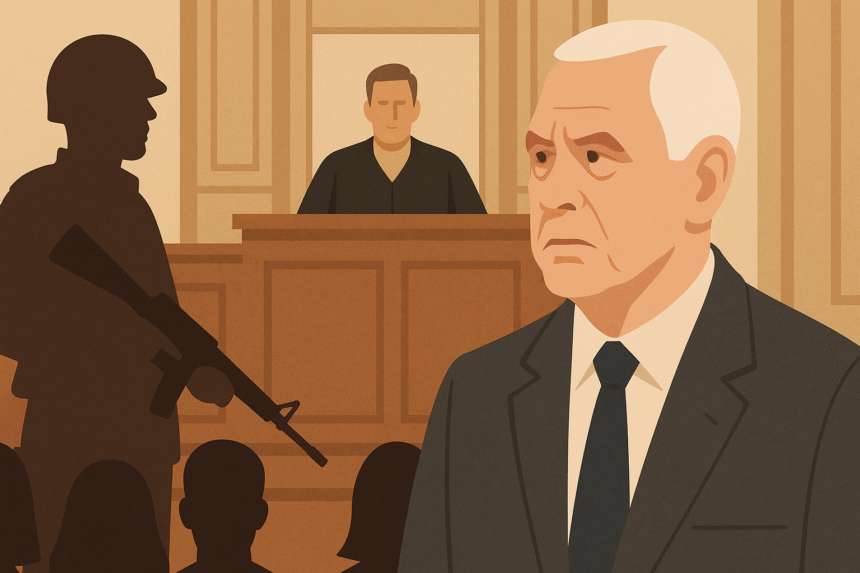A former British paratrooper, known only as Soldier F, has been acquitted of all charges related to the 1972 Bloody Sunday killings — one of the darkest episodes of Northern Ireland’s Troubles.
In a verdict delivered at Belfast Crown Court, Judge Patrick Lynch found the ex-lance corporal not guilty of seven counts of murder and attempted murder, ruling that the prosecution’s evidence fell “well short of proof beyond reasonable doubt.”
A Historic Case Ends in Acquittal
The 70-year-old veteran, whose identity remains protected for legal reasons, was accused of murdering James Wray and William McKinney, two of the 13 men shot dead when British soldiers opened fire on unarmed civil rights demonstrators in Londonderry (Derry) on January 30, 1972.
He also faced five charges of attempted murder. Throughout the trial, Soldier F maintained his innocence, appearing in court behind a curtain and making no public statement.
Judge Lynch said much of the prosecution’s case relied on statements from fellow soldiers that were riddled with inaccuracies and contradictions. One former paratrooper, the judge noted, had committed perjury, undermining the reliability of the testimony.
Families React with Anger and Disappointment
Relatives of the victims, many of whom had travelled to Belfast to attend the proceedings, expressed deep frustration.
Outside the court, Mickey McKinney, brother of victim William McKinney, denounced the verdict, saying “a coward has walked free.” He added that the ruling was “a million miles away from being an honourable discharge,” accusing the British state of protecting its soldiers rather than delivering justice.
The UK government, in a statement, said it had “provided legal and welfare support” to Soldier F, describing the case as “part of the complex legacy” of the Troubles. Officials reiterated their commitment to “acknowledging the past” while supporting those who served “during an incredibly difficult period.”
The Legacy of Bloody Sunday
Bloody Sunday remains a defining moment in the history of the Northern Ireland conflict. Thirteen men and teenagers were killed during the protest; a 14th later died from his injuries.
A 1972 government inquiry initially exonerated the soldiers, claiming they had been fired upon first. However, a second inquiry — the Saville Report, published in 2010 — concluded that the killings were “unjustified and unjustifiable.” Then-Prime Minister David Cameron formally apologised, calling the events a “national shame.”
Judge Lynch echoed that sentiment in his ruling, saying the actions of the parachute regiment had “sullied” its reputation. “Those responsible should hang their head in shame,” he said.
Continuing Search for Accountability
Although the verdict cannot be appealed, victims’ families insist their campaign for justice will continue. McKinney said they would pursue perjury charges against those who lied under oath, vowing: “We’re not finished yet.”
The trial — the first involving a British soldier accused of murder in connection with Bloody Sunday — has reignited debate over the UK’s handling of legacy cases from the Troubles, a conflict that claimed more than 3,500 lives before ending with the 1998 Good Friday Agreement.








